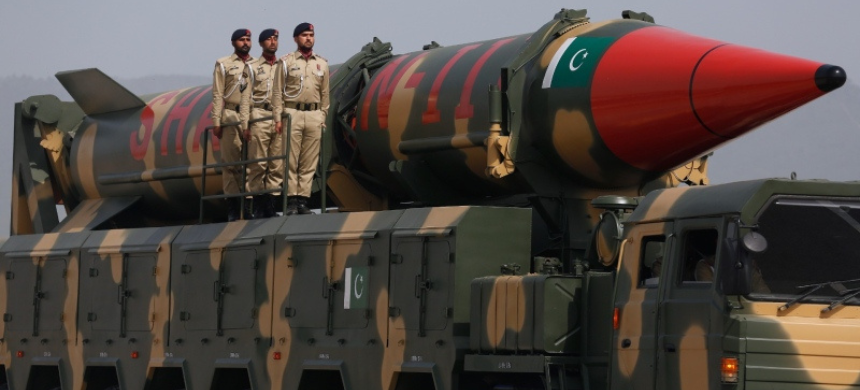US Concerns Over Pakistan’s Missile Program: A New Threat to US Homeland?
A senior White House official recently raised alarm over Pakistan’s growing missile capabilities, suggesting that the country may soon possess the ability to strike targets far beyond South Asia, potentially including the United States. Deputy National Security Adviser Jon Finer’s comments underscore the deteriorating relationship between Washington and Islamabad since the US troop withdrawal from Afghanistan in 2021.
Key Concerns: Long-Range Ballistic Missiles
Finer’s remarks, made at the Carnegie Endowment for International Peace, focused on Pakistan’s development of increasingly sophisticated missile technology, including long-range ballistic missile systems. He noted that if Pakistan continues to pursue larger rocket motors, it could eventually develop missiles capable of reaching the United States. Finer emphasized that only a few nuclear-armed states—Russia, North Korea, and China—currently possess missiles that can strike the US, and all are adversarial in nature.
Read More: US Imposes Sanctions on Firms from Pakistan, China, and the UAE
Pakistan’s Stance on its Nuclear and Missile Programs
Islamabad has long framed its nuclear weapons and ballistic missile programs as deterrents against potential aggression from India, aiming to maintain regional stability. However, Finer’s comments and the recent US sanctions suggest that Washington is concerned about the broader implications of Pakistan’s missile developments, particularly the larger rocket engines being tested.
Despite these concerns, Pakistani officials have reportedly been uncooperative in addressing the US’s security worries. Finer’s speech and subsequent sanctions highlight the growing tension over Pakistan’s missile ambitions.
Sanctions and Strategic Partnership
In line with these concerns, the US imposed sanctions targeting Pakistan’s missile development program, including for the first time against the state-run defense agency responsible for overseeing missile projects. However, the US insists that these measures are part of broader national security actions and do not affect the broader US-Pakistan partnership. While Washington values its relationship with Islamabad, particularly in areas such as counter-terrorism and regional security, the missile program remains a significant point of contention.
Future Implications for US-Pakistan Relations
The US has expressed concern over Pakistan’s refusal to acknowledge the gravity of its missile development and its potential threat to global security. Finer’s comments and the sanctions are designed to push Pakistan to reconsider its missile development trajectory, which US officials view as a shift away from countering India to possibly posing a direct threat to the United States.
Despite the tensions, US State Department Deputy Spokesperson Vedant Patel emphasized that the sanctions would not disrupt relations in other areas, reaffirming that the US remains committed to its strategic partnership with Pakistan while ensuring international security standards are upheld.











